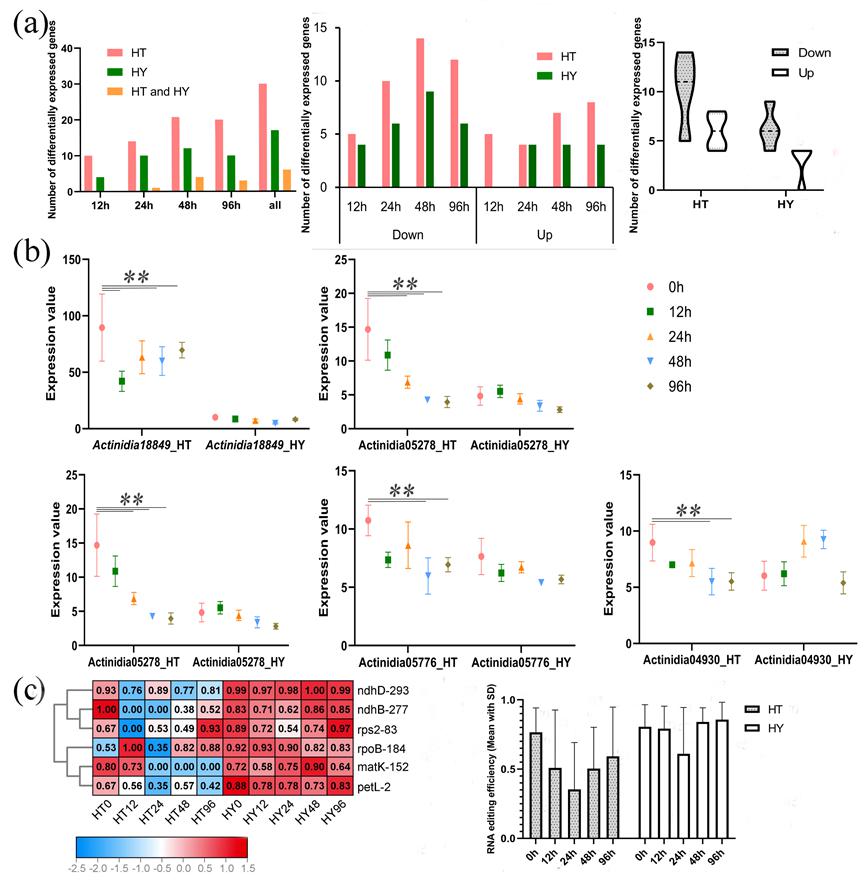Name:ZHANG Xiujun
Tell:
Email:zhangxj@wbgcas.cn
Organization:Wuhan Botanical Garden
Study Unveils the Roles of Pentatricopeptide Repeat Proteins in Kiwifruits under Pathogen Stress
2023-10-25
Being the crucial regulatory factors, Pentatricopeptide repeat proteins (PPRs) function in Ribonucleic acid (RNA) editing, organellar gene expression, photosynthesis, organellar electron transport chain, cellular metabolism, and Adenosine Triphosphate (ATP) production. Deficiencies in the functions of PPRs often result in organelle dysfunction, defects in growth and embryo development, or abnormal stress sensitivity. However, the roles of PPRs in disease resistance for kiwifruit remains unclear, the underlying roles of RNA editing are also not fully understood.
To gain a better understanding of the roles of PPRs in kiwifruits under pathogen stress, researchers from Wuhan Botanical Garden of the Chinese Academy of Sciences focused on the roles of PPRs in the fruit development and pathogen stress of kiwifruit, analyzed the chromosomal positions, phylogenetic relationships, and evolution of PPRs in two representative kiwifruit species Actinidia chinensis and Actinidia eriantha, and provided their expression patterns at different fruit development under different pathogen stress.
Results revealed a total of 497 and 499 PPRs identified in A. chinensis and A. eriantha, respectively. Based on their phylogenetic relationships from protein sequences, all the kiwifruit PPRs were classified into four clades, including one P-type and three PLS-types. About 40.68% of PPRs were localized in mitochondria or chloroplasts. A synteny analysis suggested that the expansion of the kiwifruit PPRs mainly resulted from segmental duplication, often accompanied by whole-genome duplication.
This study further showed that PPRs were differentially expressed at various stages of fruit development and maturation, indicating their role in kiwifruit’s fruit development and maturation. Differences in the expression and RNA editing profiles of PPRs between resistant and susceptible kiwifruit were observed after pathogen infection, indicating the roles of PPRs in the stress response.
The study suggested that RNA editing involving PPR and multiple organellar RNA editing factor (MORF) genes may be linked to chloroplast-mediated immunity, similar to MORF genes, PPRs affected RNA editing sites in chloroplasts and were also associated with pathogen resistance.
The findings of this study will serve as a reference for further understanding the molecular mechanism of plant immunity and for breeding kiwifruit varieties with enhanced resistance.
This study was published online in International Journal of Molecular Sciences entitled “A genome-wide analysis of the pentatricopeptide pepeat protein gene family in two kiwifruit species with an emphasis on the role of RNA editing in pathogen stress”.

Different responses of PPRs expression and RNA editing to Psa infection in Actinidia chinensis (HY) and Actinidia eriantha (HT) (Image by WBG)